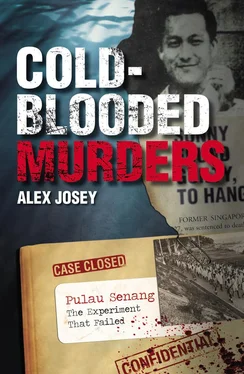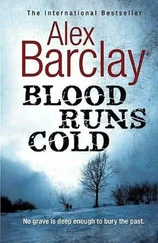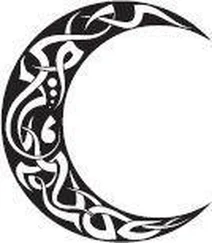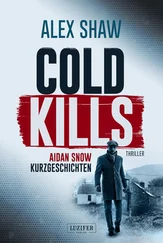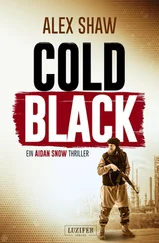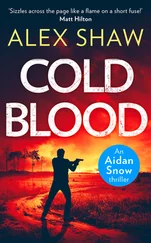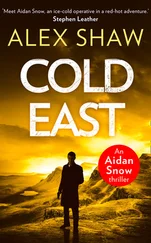Alex Josey - Cold blooded murders
Здесь есть возможность читать онлайн «Alex Josey - Cold blooded murders» весь текст электронной книги совершенно бесплатно (целиком полную версию без сокращений). В некоторых случаях можно слушать аудио, скачать через торрент в формате fb2 и присутствует краткое содержание. Жанр: Криминальный детектив, на английском языке. Описание произведения, (предисловие) а так же отзывы посетителей доступны на портале библиотеки ЛибКат.
- Название:Cold blooded murders
- Автор:
- Жанр:
- Год:неизвестен
- ISBN:нет данных
- Рейтинг книги:5 / 5. Голосов: 1
-
Избранное:Добавить в избранное
- Отзывы:
-
Ваша оценка:
- 100
- 1
- 2
- 3
- 4
- 5
Cold blooded murders: краткое содержание, описание и аннотация
Предлагаем к чтению аннотацию, описание, краткое содержание или предисловие (зависит от того, что написал сам автор книги «Cold blooded murders»). Если вы не нашли необходимую информацию о книге — напишите в комментариях, мы постараемся отыскать её.
Cold blooded murders — читать онлайн бесплатно полную книгу (весь текст) целиком
Ниже представлен текст книги, разбитый по страницам. Система сохранения места последней прочитанной страницы, позволяет с удобством читать онлайн бесплатно книгу «Cold blooded murders», без необходимости каждый раз заново искать на чём Вы остановились. Поставьте закладку, и сможете в любой момент перейти на страницу, на которой закончили чтение.
Интервал:
Закладка:
James agreed that Dutton had worked the detainees, unauthorised, overtime, but he held that Dutton was not disobeying orders but, as the man on the top, he used his judgement in cases of emergency. James said that Dutton had satisfied him on 23 April that overtime had been necessary. A road was caving in and there were threats of rain. The road had to be repaired before the rains came.
Under heavy cross-examination, James explained that certain construction projects depended on tide. When it was low tide at night, they worked at night. If something collapsed in the middle of the night ‘we would put it right at night. Not wait until morning.”
James said he had heard rumours of corruption at Pulau Senang and had reported the matter to the Corrupt Practices Investigation Bureau.
James told the Court that all detainees were returned to Singapore once a month to receive visits from relatives in prison.
One of the defence counsel asked Major James what he thought was the real purpose of the island. Was it to produce a magnificent feat of engineering, like a jetty? Or was it to teach the detainees how to become good citizens, and respect law and order?
James told him the short answer was that the idea of Pulau Senang was to show detainees that there was a better way of life than living as a secret society gangster. It was an essential ingredient of this better life that they could become proud of achieving something by their own efforts. They achieved that. “They built a magnificent establishment, the best prison establishment I have seen anywhere in the world. They built this with their own efforts under Dutton’s leadership.”
James went on to say that work was the major factor of rehabilitation to men in whose vocabulary the word work did not exist-‘not unless you call extortion work’.
Did Dutton have favourites? James said that would be out of character with a man like Dutton. He thought highly of some of the detainees: these would have been the ones he would have thought he could have relied on. Mr Braga: Do you know that he used a system of informers among those whom I call his favourites? Major James: I don’t doubt there were plenty of people who would run to him with information. That would be common in an establishment of that nature.
James added that he thought some of the informers might be among the most shrewd and cunning performers he could think of anywhere. Mr Braga: Didn’t Dutton force detainees to become blood donors? Major James: They gave of their own free will.
He said that the Blood Transfusion Unit came and prisoners gave blood-as they would anywhere-for the cake and cup of tea. Mr Braga: But I was told that if they did not do so they would be sent back to Changi. Major James: That is a diabolical untruth.
He explained that twice the detainees won a prize for being the organisation with the greatest number of blood donors of the month. The money was paid into the General Amenities Fund which bought sports equipment for the detainees.
James was questioned about corruption on the island. He said an officer had told him that a member of the staff was driving about Singapore in a car owned by the relatives of a detainee. “He told me that the same person was wearing a Rolex watch which had been given to him by the family of that detainee.” James said detainees were not allowed to receive money from relatives. He said that Settlement Attendant Low Ah Kow had often been accused of trafficking, bringing contraband-cigarettes and tobacco-from Singapore into Pulau Senang. Surprise searches were made but nothing was ever found.
Former Chief Officer Jenardaran gave evidence that he had heard reports of corruption: there were complaints against Low Ah Kow but nothing was proved. He passed this information on to Dutton. He knew nothing of Low conveying messages from relatives to the detainees, or of him receiving money on consequence. He had made a complaint against Chia Teck Whee to Major James for receiving money from detainees to secure release. It had been alleged that Chia had been seen driving around in a detainee’s car, taking the detainee’s relatives for a ride.
James told a defence counsel that instructions regarding tools at Pulau Senang were that they were kept in the guardroom: tools used at the worksite were kept in the workshop. At the luncheon break tools that were being used would be left at the worksite.
Witness followed witness. Much of the evidence was repetitive. The patience of judge and jury, accused and witness, became sorely tried. A new note of interest was struck when one of the prosecution witnesses, a detainee, Chong Sek Ling (alias Low Ho Kia), revealed that he had held the rank of General Headman of the Group 18 Secret Society (also known as Chap Sar Yeow). This is one of the highest ranks in a secret society.
On one occasion, the Judge asked Crown Counsel why he continued to cross-examine a witness. Mr Seow explained that he was trying to establish a recapitulation of what happened. Judge: It does not add any strength to your case. It only irritates me and the jury. You do yourself more harm than good.
Chong Sek Ling said he had been lazy in Pulau Senang and twice had been sent back to Changi.
In his evidence he told of a meeting in the dining hall. Chong said there were seven of them. It was a gathering of those who were high in positions in their respective secret societies. Mr Ball: I object to that answer being recorded. Judge: On what grounds? Mr Ball: On the grounds of attacking the character of the accused. Crown Counsel: I’m afraid I’m bereft of words. We must face facts. This island was set up for Criminal Law detainees. The witnesses are themselves members of various secret societies. Whether the Crown wishes it or not, directly or indirectly, the fact is that all our witnesses were former members of secret societies, and by any irresistible inference all the accused are themselves members and that is why they have been detained under the Criminal Law, and the sooner we face the facts of this case I think the better it would be. Mr Ball: I have nothing to say. Judge: Your objection is overruled.
Chong said that he met Tan Kheng Ann after a visit to Singapore and Tan told him that Dutton was very cocky and the leaders of the secret societies had met and they had made the arrangement and trouble would start in the near future. Tan said they had made up a list of the persons they were going to liquidate. There were seven of them; Dutton headed the list. Chong said he told Dutton all about this. Dutton laughed. He said he was not afraid. Anyone who attacked him would land himself in hospital for a week. One punch would be enough. Witness: He took the names down in a booklet. Mr Francis Seow: Where did he get the booklet from? Witness: From his hip pocket. Judge: What does it matter whether he produced it from his shoe or his armpit? Why waste time? If Counsel does not like it, they can cross-examine on it.
Chong said he did not join in the riot. Instead, he went to the kitchen to lay in some food and to have a good feed. Did he like the food at Pulau Senang? He said he considered the food at Changi better because he did not have to work hard for it. If he did any work at Changi it would be light work. He was 38 years old. There were no members of his society in Pulau Senang at the time among the detainees but a settlement attendant, Robert Choo, was. There were members of rival secret societies with whom he had gang-wars prior to his imprisonment at Changi. He admitted that the men he gave evidence against in Court were all members of rival secret societies.
Why did the group of rival gangsters tell him the plot? Because, Chong said, they had affection for him. They warned him not to tell anyone. Crown Counsel asked him why he wanted to help Dutton. He said: “Because during my three years at Pulau Senang, I found Dutton was not corrupt. He was fair. He gave equal treatment to all.”
Читать дальшеИнтервал:
Закладка:
Похожие книги на «Cold blooded murders»
Представляем Вашему вниманию похожие книги на «Cold blooded murders» списком для выбора. Мы отобрали схожую по названию и смыслу литературу в надежде предоставить читателям больше вариантов отыскать новые, интересные, ещё непрочитанные произведения.
Обсуждение, отзывы о книге «Cold blooded murders» и просто собственные мнения читателей. Оставьте ваши комментарии, напишите, что Вы думаете о произведении, его смысле или главных героях. Укажите что конкретно понравилось, а что нет, и почему Вы так считаете.
